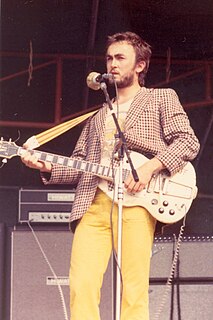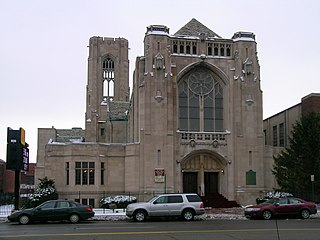
PRINCE2 is a structured project management method and practitioner certification programme. PRINCE2 emphasises dividing projects into manageable and controllable stages.
Chris Holmes may refer to:
GRIMMS was an English pop rock, comedy and poetry group, originally formed as a merger of The Scaffold, the Bonzo Dog Band, and the Liverpool Scene for two concerts in 1971 at the suggestion of John Gorman.
The MoSCoW method is a prioritization technique used in management, business analysis, project management, and software development to reach a common understanding with stakeholders on the importance they place on the delivery of each requirement; it is also known as MoSCoW prioritization or MoSCoW analysis.
In time management, timeboxing allocates a fixed time period, called a timebox, within which planned activity takes place. It is employed by several project management approaches and for personal time management.

Peter John 'Ollie' Halsall was an English guitarist best known for his role in The Rutles, the bands Timebox, Patto and Boxer, and for his contribution to the music of Kevin Ayers. He is also notable as one of the few players of the vibraphone in rock music. He was known by his childhood nickname 'Olly' or 'Ollie' which was simply a corruption of his surname. The Ollie Halsall Archive was established in 1985, with the aim of documenting and promoting the work of a unique musician.

The American Student Government Association (ASGA) was founded in 2001 as a professional association for collegiate Student Governments and Student Government Associations across the United States.
Web application development is the process and practice of developing web applications. There is a consensus that the processes involved are extensions of standard software engineering processes. Considering this, along with its unique characteristics, popular frameworks used include the spiral approach and business-oriented approach to application development, among other models that address the requirements for an iterative process.

Nuggets II: Original Artyfacts from the British Empire and Beyond, 1964–1969 is a 2001 four-disc box set from Rhino Records.
A Band Of Angels were a mid-1960s pop group, featuring Mike d'Abo, John Edward Baker, John Christian Gaydon, Andrew Charles Malcolm Glywn Petre (drums), David Robert Wilkinson.
Patto were an English progressive rock band, formed in London in 1970.
Timebox was an English 1960s psychedelic pop band, that developed from a complicated ancestry. They formed in October 1965, in Southport, Lancashire.

"Beggin'" is a song composed by Bob Gaudio and Peggy Farina and popularized by The Four Seasons in 1967. In 2007, the song received new popularity when it was remixed by the French DJ Pilooski and then covered by the Norwegian hip-hop band Madcon, whose version topped the charts in Norway, France, the Netherlands and Wallonia.
Mike Patto was an English musician, who was primarily notable as lead singer for Spooky Tooth and Boxer.

The Rutles is a soundtrack album to the 1978 telemovie All You Need Is Cash. The album contains 14 of the tongue-in-cheek pastiches of Beatles songs that were featured in the film.
Colour Me Pop was a British music TV programme broadcast on BBC2 from 1968–1969. It was a spin-off from the BBC 2 arts magazine show Late Night Line-Up. Designed to celebrate the new introduction of colour to British television, it was directed by Steve Turner, and showcased half-hour sets by pop and rock groups of the period. The programme was a pioneering precursor to the better-remembered BBC music programme The Old Grey Whistle Test (1971–87). Unlike its successor, most of the editions of Colour Me Pop are missing, due to the BBC's archival policy of the time.
John Halsey is a rock drummer, best known for his appearance as Barrington Womble in The Rutles, leading to his playing with Neil Innes's band Fatso and appearing in the television film All You Need is Cash (1978).
In software engineering, a software development process is the process of dividing software development work into distinct phases to improve design, product management, and project management. It is also known as a software development life cycle (SDLC). The methodology may include the pre-definition of specific deliverables and artifacts that are created and completed by a project team to develop or maintain an application.

The North End is a neighborhood in the northeast side of Detroit, Michigan. It is located in the Woodward Corridor, a densely populated region along Woodward Avenue that stretches from Downtown Detroit to the suburb of Pontiac. The North End has been home to several development initiatives, seen by many as an area for future development extending from Downtown and Midtown.
Michael Aldred was a British record producer and music journalist. However he is probably best remembered as co-presenter of the 1960s music show Ready Steady Go!.






